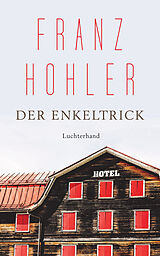Man and Superman
CHF7.00
Download est disponible immédiatement
Description
Man and Superman - George Bernard Shaw - Man and Superman is a four-act drama written by George Bernard Shaw in 1903. The series was written in response to a call for Shaw to write a play based on the Don Juan theme. Man and Superman opened at the Royal Court Theatre in London on 23 May 1905, but it omitted the third act. A part of the act, Don Juan in Hell (Act 3, Scene 2), was performed when the drama was staged on 4 June 1907 at the Royal Court. The play was not performed in its entirety until 1915, when the Travelling Repertory Company played it at the Lyceum Theatre, Edinburgh. Mr. Whitefield has recently died, and his will indicates that his daughter Ann should be left in the care of two men, Roebuck Ramsden and John Tanner. Ramsden, a venerable old man, distrusts John Tanner, an eloquent youth with revolutionary ideas, whom Shaw's stage directions describe as 'prodigiously fluent of speech, restless, excitable (mark the snorting nostril and the restless blue eye, just the thirty-secondth of an inch too wide open), possibly a little mad'. In spite of what Ramsden says, Ann accepts Tanner as her guardian, though Tanner does not want the position at all. She also challenges Tanner's revolutionary beliefs with her own ideas. Despite Tanner's professed dedication to anarchy, he is unable to disarm Ann's charm, and she ultimately persuades him to marry her, choosing him over her more persistent suitor, a young man, Tanner's friend, named Octavius Robinson.
Échantillon de lecture
Act 1
Roebuck Ramsden is in his study, opening the morning letters. The study, handsomely and solidly furnished, proclaims the man of means. Not a speck of dust is visible: it is clear that there are at least two housemaids and a parlormaid downstairs, and a housekeeper upstairs who does not let them spare elbow-grease. Even the top of Roebuck's head is polished: on a sunshiny day he could heliograph his orders to distant camps by merely nodding. In no other respect, however, does he suggest the military man. It is in active civil life that men get his broad air of importance, his dignified expectation of deference, his determinate mouth disarmed and refined since the hour of his success by the withdrawal of opposition and the concession of comfort and precedence and power. He is more than a highly respectable man: he is marked out as a president of highly respectable men, a chairman among directors, an alderman among councillors, a mayor among aldermen. Four tufts of iron-grey hair, which will soon be as white as isinglass, and are in other respects not at all unlike it, grow in two symmetrical pairs above his ears and at the angles of his spreading jaws. He wears a black frock coat, a white waistcoat (it is bright spring weather), and trousers, neither black nor perceptibly blue, of one of those indefinitely mixed hues which the modern clothier has produced to harmonize with the religions of respectable men. He has not been out of doors yet to-day; so he still wears his slippers, his boots being ready for him on the hearthrug. Surmising that he has no valet, and seeing that he has no secretary with a shorthand notebook and a typewriter, one meditates on how little our great burgess domesticity has been disturbed by new fashions and methods, or by the enterprise of the railway and hotel companies which sell you a Saturday to Monday of life at Folkestone as a real gentleman for two guineas, first class fares both ways included.
How old is Roebuck? The question is important on the threshold of a drama of ideas; for under such circumstances everything depends on whether his adolescence belonged to the sixties or to the eighties. He was born, as a matter of fact, in 1839, and was a Unitarian and Free Trader from his boyhood, and an Evolutionist from the publication of the Origin of Species. Consequently he has always classed himself as an advanced thinker and fearlessly outspoken reformer.
Sitting at his writing table, he has on his right the windows giving on Portland Place. Through these, as through a proscenium, the curious spectator may contemplate his profile as well as the blinds will permit. On his left is the inner wall, with a stately bookcase, and the door not quite in the middle, but somewhat further from him. Against the wall opposite him are two busts on pillars: one, to his left, of John Bright; the other, to his right, of Mr Herbert Spencer. Between them hang an engraved portrait of Richard Cobden; enlarged photographs of Martineau, Huxley, and George Eliot; autotypes of allegories by Mr G.F. Watts (for Roebuck believed in the fine arts with all the earnestness of a man who does not understand them), and an impression of Dupont's engraving of Delaroche's Beaux Artes hemicycle, representing the great men of all ages. On the wall behind him, above the mantelshelf, is a family portrait of impenetrable obscurity.
A chair stands near the writing table for the convenience of business visitors. Two other chairs are against the wall between the busts.
A parlormaid enters with a visitor's card. Roebuck takes it, and nods, pleased. Evidently a welcome caller.
RAMSDEN. Show him up.
The parlormaid goes out and returns with the visitor.
THE MAID. Mr Robinson.
Mr Robinson is really an uncommonly nice looking young fellow. He must, one thinks, be the jeune premier; for it is not in reason to suppose that
